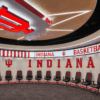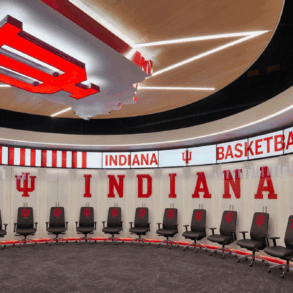(Editor’s note: This is the fifth installment of a multi-part series by MTN Sports on the current state of college athletics. For Part 1, click here. For Part 2, click here. For Part 3, click here. For Part 4, click here.)
MISSOULA — On an NCAA webpage detailing the benefits of being a college student-athlete, education and academic success occupy the Nos. 1 and 2 spots on the list.
College athletics’ governing body requires academic achievement for student-athletes to retain their eligibility to compete. According to the NCAA, it tracks student-athletes’ grades, minimum credit hours per year and progress toward earning a degree.
Graduation success rates (GSR) and academic progress rates (APR) are among the tools the NCAA uses to measure academic performance.
The NCAA recently touted record graduation rates and upward trends in academic progress, eligibility and retention. However, the numbers are hitting moving targets, as academic requirements and measurements were paused or altered during the height of the COVID-19 pandemic.
APR penalties were suspended during the pandemic, and the NCAA Division I board of directors removed a grade-point average (GPA) requirement for transfers in 2021.
In 2023, the NCAA removed standardized test scores (like the SATs and ACTs) from initial-eligibility requirements.
Those academic moves coupled with open transfer rules — and now name, image and likeness (NIL) earning opportunities — have completely changed the student-athlete experience.
“Education is a big component of college athletics,” Montana State men’s basketball coach Matt Logie said, “and I think a lot of the rules that have been either taken away or put into place were done with a very small percentage of athletes in mind or athletes that were affected.
“The majority of college athletes across the board do not become professional athletes, and therefore, the education piece, the networks that they build, the alumni relationships, those are really, really valuable. When the ball does stop bouncing for you, unfortunately there are a lot of young people that are losing connection to that part of the experience.”
Logie became the Bobcats’ men’s basketball coach prior to the 2023-24 season and won the Big Sky Conference tournament championship that March with a team featuring eight transfers. MSU again had eight transfers on the 2024-25 roster and figures to have a similar number on the 2025-26 team.
“At Montana State University, there’s a great appreciation for the value of our degree and the education that’s provided and the experience that being a college athlete enhances,” said Logie, who had eight players earn all-academic honors in the Big Sky Conference last season. To be eligible for all-academic recognition, a student-athlete must have at least a 3.2 GPA, among other qualifications.
“(But) there are certainly people that are exploiting the loopholes and the freedom of movement that are putting education in a much lower part of the priority spectrum,” Logie continued.
“And I think that’s unfortunate because there are kids out there that are going to get left out of the musical chairs of the transfer portal, or they’re going to make decisions based on third-party agents that are trying to take advantage of them for a buck and could end up without a college degree at the end of their matriculation of different schools and different levels.”
To be eligible for competition, NCAA rules require Division I student-athletes to stay on track to graduate. The “progress toward a degree” standards say student-athletes must complete 40% of required coursework for a degree by the end of their second year, 60% by the end of their third year and 80% by the end of their fourth year.
Student-athletes are currently allowed five years of eligibility, but that NCAA bylaw is being challenged by athletes across the country, including locally. Montana men’s basketball player Kai Johnson, who joined the Grizzlies after beginning his college career at Division II Western Washington, filed a lawsuit against the NCAA in April seeking another year of eligibility.
Johnson’s lawsuit specifically references the case of University of Wisconsin football player Nyzier Fourqurean, who successfully fought to maintain his college eligibility.
The NCAA also frequently grants waivers to student-athletes seeking additional eligibility. Montana football players Dillon Botner and Cade Klimczak both received waivers earlier this year and are expected to play in the fall as graduate students. Their college careers began in 2019, and they’re now working toward advanced degrees.
Their academic success is the exception, not the rule, according to Bobby Hauck and Brent Vigen, the respective football coaches at Montana and Montana State. The coaches said many transfers, especially those leaving Bozeman or Missoula, don’t prioritize academics.
“Yes, there are some student-athletes that are certainly benefiting, but what’s it doing to the bigger group, the greater amount of student-athletes?” Vigen said. “Is this really all that positive? The movement? The extended, I suppose, pursuit of their degrees?”
“The data is, and has been for multiple decades, when you switch schools, it deters your opportunity to graduate,” Hauck said.
The Bobcats and Grizzlies, for their part, can hang their hats on recent academic success. Former Montana State player Brody Grebe was named one of two FCS scholar-athletes of the year in April, and the Grizzlies boasted the highest football APR in the Big Sky Conference in 2023-24 with a score of 985 (out of a possible 1,000), which ranked in the top 50 nationally.
Last fall, Montana had a Big Sky-best 40 all-academic players, and Montana State was second with 39.
“(Education) used to be paramount to everything, and now it’s not even talked about. Nobody talks about it,” Hauck said.
Added Vigen: “We’ve made this an open market to transfer no matter what. The academic piece is very minimal.”
This post was originally published on this site be sure to check out more of their content.




